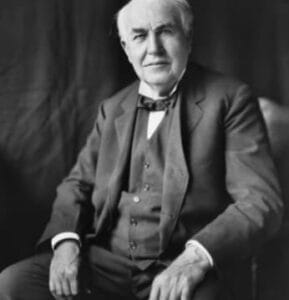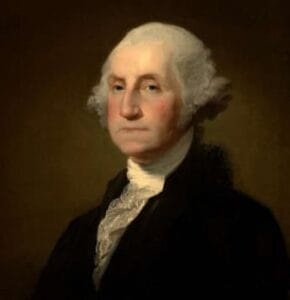Alexander the Great Biography, Empire, Death, History And More
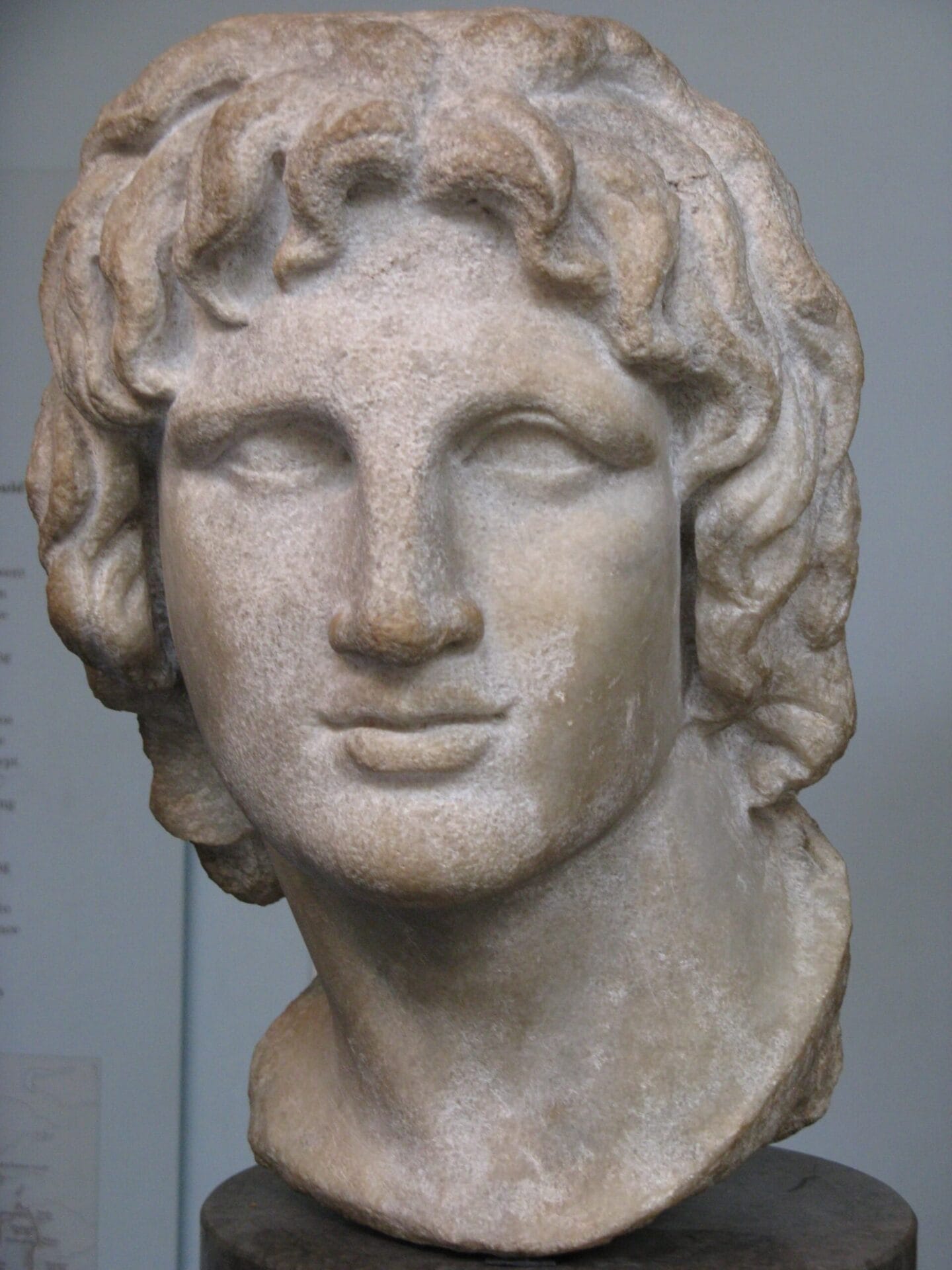
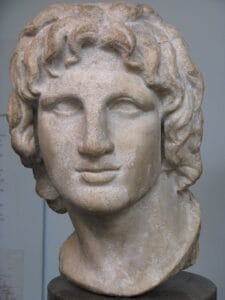
If you are searching for an Alexander the Great Biography then you have come to the right place. We are providing you with Alexander the Great Biography. Many of his fans want to know all the known and unknown thoughts about him. You will find out about Alexander the Great Biography, Empire, Death, History, And More.
Alexander the Great Biography
For the history of the ancient civilization of the exploits, Alexander the Great marked a flurry of such proportions that even today we can speak unreservedly of a before and after its passage through the world. And, though his legacy Providence (the extension of the Hellenic culture to the farthest reaches) was aided by a range of favorable circumstances that review time historians, the biography of Alexander the Great is indeed a genuine epic.
Alexander, otherwise known as Alexander the Great, was the king of Macedon, a state in the northeastern region of Greece. Alexander the Great was born in Pella on 21 July 356 BC. He succeeded to the throne in 336 BC after Philip II of Macedon, his father, was assassinated. He inherited a well-built kingdom and a skilled army. Then, he obtained the generalship of Greece and expanded the state left by his father. He was unbeatable in battle and is believed to be one of the most successful conquerors of all time. Alexander breathed his last on 11 June 323 BC.
By the second half of the fourth century BC, a small territory in northern Greece, scorned by the proud Athenians and called a barbarian, began his meteoric expansion under the aegis of a military genius: Philip II, king of Macedonia. The key military success was the development of the “oblique order of battle” by Epaminondas experienced before. He had to have the cavalry on the wing attacker, but especially in providing mobility, reducing the number of rows, the infantry battalions, which previously could only steer in one direction. The famous Macedonian phalanx was formed by rows of sixteen men in the background with a helmet and iron shield and a spear called saris.
Legend has it that, the same day he was born Alexander, a quirky pyromaniac fire to one of the Seven Wonders of the World, the Temple of Artemis at Ephesus, taking advantage of the absence of the goddess, who had come to protect the prince’s birth. When arrested, he confessed that he had done for his name into history. The authorities executed him, ordered him to disappear until the innermost witness of his way in the world, and never forbade his name was uttered. But more than two thousand years later still remembered the infamous outrage of Hero stratus disturbed, and the priests of Ephesus, according to legend, saw the disaster, the unmistakable symbol that someone, somewhere in the world, had been born to rule over throughout the East. According to another description from that of Plutarch, he was born during a night of strong winds, which augurs interpreted as the announcement of Jupiter that its existence would be glorious.
Now let’s know more about Alexander the Great Biography. You will know many more interesting and informative things about him. Let’s know more about Alexander the Great Biography.
Born to win
To be predestined by the gods and oracles to rule the two empires after the confirmation of the exceptional destiny seems more attributable to its peculiar reality. Grandson and son of kings in an era when the aristocracy was composed of warriors and conquerors, was prepared for it since I was born.
At the time of birth, his father, Philip II, army general and brand-new king of Macedonia, whose throne he had agreed months earlier, was far from Pella, on the Chalkidiki peninsula, celebrating with his soldiers surrender of the Greek colony of Potidaea. Upon receiving the news, full of joy, then to Athens sent a letter to Aristotle, in which he participated the event and thanked the gods that his son had been born in his time (the philosopher), and transmitting the hope that one day become his disciple. Olympians Queen of Macedonia, his mother was the daughter of Neoptolomeo king of Molossia, and, like his father, determined and violent. Closely monitored the education of their children (born soon Cleopatra, sister of Alexander) and imbued in them their ambition.
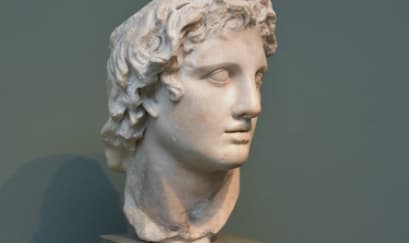 Alexander the Great Biography
Alexander the Great Biography
The prince had first and then Lysimachus Leonidas two severe childhood educators who underwent a rigorous discipline; nothing super flouts, nothing frivolous, nothing from inducing sensuality, Of natural irritable and emotional, that austerity agreed, apparently, his character, and acquired a perfect mastery of himself and his actions.
When, at the age of twelve years, the king so far away from him because of his constant military campaigns, decided to pursue their education personally, was amazed to come face to an intelligent and courageous, full of opinion, extraordinarily gifted, and interested in what was happening around him. It was the right time to be instructed by Aristotle. From the past thirteen years and up to seventeen, Prince practically lived with the philosopher. He studied grammar, geometry, philosophy, and, especially, ethics and politics, although in this sense the future king does not follow the ideas of his preceptor. Over the years, he admits, Aristotle taught him to “live with dignity”; always felt by the Athenian philosopher with heartfelt gratitude.
Aristotle also taught him to love the Homeric poems, particularly the Iliad, which eventually became an obsession of the adult Alexander the Great. The new Achilles was once asked by his teacher about their plans for him when he had come to power. The prudent Alexander said that when the time response would be because man can never be sure of the future. Aristotle, far from nurturing suspicions regarding this reluctant reply, was very pleased and prophesied that he would be a great king.
Alexander the Great was growing as the Macedonians and Philip domains increased their glory. From an early age, appearance and value were paralleling those of a lion, and when he was only fifteen years, as Plutarch recounts, there was a dazzling story that anticipates the future. Philip wanted to buy a wild horse with a beautiful picture, but none of its valiant horsemen were able to tame him, so he had decided to give it up. Alexander the Great infatuated with the animal, wanted to have a chance to ride, although his father did not think a boy succeed where the older ones had failed. To the astonishment of all, the future conqueror of Persia rose on the back of what would become his inseparable friend for many years, Bucephalus, and galloped over it with unexpected ease.
Healthy, strong, and handsome (always according to Plutarch), Alexander incarnates the sixteen and seventeen, the prototype of ideal youth. He was in the full force of love by Dorian enriched by Plato’s philosophy, and a descendant of Dorian himself a teacher who, in turn, had been for twenty years, the favorite pupil of Plato. And by mutual admiration with Aristotle himself, and giving it as a training method other boys of his mind, but would not be characterized at the time and the warrior society in which he lived, the role corresponding to their age and condition.
If, as Plato argued, this kind of love promoted heroism, in Alexander the Great in those years, the awakening of the hero was imminent. In his sixteen years, he was able to run a war, and domination and sufficient criteria to rule. Could soon prove both. Perinthus wounded his father, was named to replace him. It was the first time he took part in combat, and his conduct was so bright that he was sent to Macedonia as regent. In 338 his father marched south to subdue the tribes of Anfisa, north of Delphi.
From the year 380 BC, a Greek visionary, Isocratic, had preached the need to leave the infighting in the peninsula and the formation of a pan-Hellenic League. But decades later, the Athenian Demosthenes was concerned by the conquests of Philip, who had taken over the northern Aegean coast. Demosthenes, Philip’s sworn enemy, took the distance to induce the Athenians to arm themselves against the Macedonians. On hearing that the king departed with his son at Chaperone and fought with the Athenians, the Theban phalanx glorious, undefeated since its formation by the great Epaminondas, was completely devastated until the last soldier was killed in battle “Theban Chaperone” where the young Alexander captained the Macedonian cavalry.
Alexander the Great was able to win the admiration of his soldiers in this war and became so popular that the subjects commented that Philip was still the general, but his king was Alexander. Quintus Curtis that after the victory at Chaeronea, where the prince had shown, despite his youth, to be not only a heroic fighter but also a clever strategist, his father embraced him with tears in his eyes, said: ” My son, get yourself another realm that is worthy of you. Macedonia is too small! “.
Finished campaigns against Thracians, Illyrians, and Athenians, Alexander, Alcimaco, and Antipater were appointed delegates to manage the peace treaty. It was then that he saw for the first time Greece in all its glory. Greece had learned to love through Homer. The land which Aristotle had given him his pride and passion. In his brief stay, he was taxed with great honor. There he attended lectures and gyms and sport was brought in the pentathlon, under the attentive and admiring gaze of adults, who transformed these institutions into genuine “Courts of Love.” There was direct contact with art at the height of Praxiteles and the preliminary moment’s Attic school.
Hope you are liking Alexander the Great Biography and many interesting facts and his history.
The Murder Of Philip
Philip, meanwhile, had gathered under its authority throughout Greece except for Sparta. In the 337, at forty-five years, dragging passion since it passes through the mountains on the Adriatic, and do not hesitate to return to Illyrian in search of Attala, the princess who had fallen in love. After twenty years of marriage (although very few of them came close to his wife and disputes were increasingly growing), nor hesitate to repudiate Olympians and celebrate a new marriage with Attala.
Alexander the Great loved his mother who bore no offense to the king to his lawful wife inferred. However, he was forced to attend the wedding banquet. During the ceremony, he criticized the actions of his father, and he, drunk, came to threaten him with his sword. Outraged, his pride wounded, the prince ran next to his mother and begged her to flee with him. With a few faithful people, mother and son left Pella to take refuge in the palace of his uncle Alexander, king of Molasses in succession to his maternal grandfather.
They lived there until Philip, showing signs of repentance, promised to pay taxes to the queen and honor him. However, while Olympians agreed, it likely conspired with Pausanias for the accomplishment of his revenge against Philip and the crystallization of its ambitions to the regency. A few weeks later (it was now the spring of 336) returned all of Epirus, including Philip. They celebrated the wedding of his daughter Cleopatra to Alexander of Molossia, uncle of the bride. During the bridal procession, Philip II was assassinated by Pausanias.
Olympians seems clear that participated (perhaps was the mentor) in the murder of the king. But Alexander the Great! Was he outside? At twenty years with the kingdom of Macedonia, got almost a divine order to begin the life of glory to which it was intended. And then he set to work. In the first place (here Quintus Curtis Rufus says that “given punishment, by itself, the murderers of his father, “but it seems reliable) did eliminate all those who might oppose him. He had not finished the year 336 when the popular assembly at Corinth was designated “Generalissimo of the Greek armies”.
King of Macedonia
At the beginning of the year 335, the lifting of Thrace and Ill aria was required during a brief campaign that won the conquest and submission of both regions. Not just returned to his kingdom when the revolt of the Theban, coupled with the Athenians, after the rumor of his death in Icaria, demanded a new and urgent battle to prevent the coalition total.
But the siege of Thebes was not easy; Thrace and Illyria had been, by comparison, child’s play given the strength of the city, Alexander the Great decided to take it by assault. Put to the sword, one-by-one, over six thousand citizens, reduced to slavery to a garrison composed of thirty thousand soldiers and ordered the total demolition of the city, although, in a more than the eloquent act of respect for the art and culture, he ordered the demolition to save the house where he had lived Pindar, Greek poet of baboons, who sang with lyrical beauty to the athletes in their Epinicio (or “songs of the sports arena) and is counted among its favorite poets. Athens was submitted without resistance.
Upon returning to Macedonia, he worked in the preparation of war against the Persian Empire; the war began with his father (for whom he had been the dream of his life) which was interrupted after his death. It is possible that from the end of spring 335 to 334 he made several trips to Epirus and Athens. In Epirus ruled his sister Cleopatra, Queen of Molossia, who had his advice. Lipo Athens, the sculptor of Scion and friend of Alexander, made him several busts, some of which may date from that time.
The Conquest Of The Persian Empire
While preparing his departure for Persia, Alexander consulted a diviner to ascertain the meaning of this premonition. The forecast would augur very successful in business because the divinity revealed in this sign that future poets would be hard to sing their deeds. Alexander took Thessaly and local authorities told the people that Thessaly would be tax-free forever. He swore that, like Achilles, would accompany his soldiers as many battles as are necessary to enhance and glorify the nation.
When they arrived at Corinth, Alexander the Great felt a desire to know of Diogenes, the great philosopher, famous for his legendary wealth and disregard for the conventions, who, though he was about eighty years, retained his intellectual faculties. Sitting under a shed, basking in the sun, Diogenes looked at the king with total indifference. According to Plutarch, when the monarch said: “I am Alexander, the king“, Diogenes replied: “And I am Diogenes, the Cynic.” “Anything I can do for you?” asked Alexander the Great, and the philosopher replied: “Yes, you can do me the favor of leaving because you’re removing your shadow between me and the sun.” Later the king told his friends: “If I were not Alexander, I would be Diogenes.”
Sometime later, another unique story offers a new dialogue legendary, but this time with Dioxides, pirate popular with mortgage loans, the Tyrrhenian and the Greeks, who, captured and brought before him, is not daunted by the warning of the king when the latter said: “By what right pillage the seas?” Dioxides replied,” Same to you pillage the earth”; “But I’m a king and you’re just aspirate.” “We both have the same job, “said Dioxides. If the gods had made me a king and you a pirate, I would perhaps be better sovereign than you, while you would never be a pirate business and unbiased as I am.”
In June of 334 achieved the victory of the Granicus, on the Persian satraps. In the thunderous and bloody battle, Alexander the Great was about to perish, and only the timely help at the last moment of his general Clio saved his life. Also won Halicarnassus, went to Phrygia, but before passing through Ephesus, was able to meet the famous Apelles, who would become his particular and unique artist. Apelles lived at the court until the death of Alexander.
In early 333, Alexander the Great arrived with his army to Gordion, a city cut-out of the legendary King Midas and an important trading post between Ionia and Persia. There the Gordian raised the invader’s seemingly unsolvable dilemma. An intricate knot tied the yoke to Cart Gordian, King of Phrygia, and from ancient times is said that whoever could undo it would dominate the world. All had failed before but the intrepid Alexander the Great could not resist the temptation to unravel the puzzle. With a violent coup executed with the blade of his sword, cut the rope, and then said sarcastically: “It was that simple.”
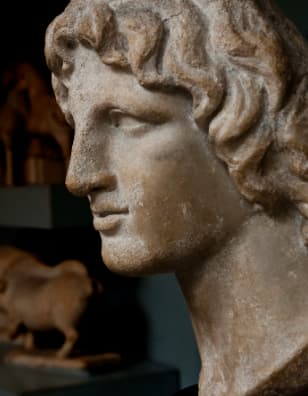
He crossed the Taurus, Cilicia, and crossed in the autumn of 333 BC. It took place in the plain of Issues where he fought against Darius, king of Persia. Before the confrontation, the king harangued his troops, fearing the enemy’s numerical superiority. Alexander was confident in victory because he was convinced that nothing could crowd against intelligence and that a bold stroke would come to tip the scales in favor of the Greeks. When the outcome of the contest was still uncertain, the coward Darius fled, leaving his men to disaster. The cities were looted and the women and daughters of the king were seized as hostages so that Darius was forced to submit to conditions of peace Alexander extremely advantageous for the victorious Macedonians. He gave the western part of its empire the most beautiful of his daughters in marriage. The noble Parmenion seemed a satisfactory offer, and advised his boss: “If I were Alexander, would accept.” To which he replied: “Also if Parmenion“.
Alexander the Great aspired to rule all of Persia and could not comply with that honorable treaty. This should take control of the eastern Mediterranean. Destroyed the city of Tyre after a seven-month siege, took Jerusalem, and went into Egypt without finding any resistance, preceded by his fame as a conqueror of the Persians, was welcomed as a liberator. Alexander presented himself as a protector of the old religion of Amun and, after visiting the temple of the oracle of Zeus Ammon in the Siwa oasis, located in the Libyan Desert, proclaimed his divine sonship Pharaonic-style.
That visit to a shrine; his God was not purely Egyptian owner, had a definite political purpose. Alexander the Great, as a good politician, could not pass up the opportunity to increase his prestige and popularity among the Greeks, many of whom were reluctant to him. It is said that after requesting the consultation of the oracle, the priest said with a greeting reserved for pharaohs addressing him as “son of Amun.” Then (follows the legend), penetrated only inside the building and listened carefully to the answer, “according to his wish”, as Alexander the Great himself declared. On this visit and the scope of the prophecy was poured rivers of ink. Most historians agree that there would have informed the Macedonian oracle of divine origin, and predicted the creation of the Universal Empire. The fact is that there is no known text to provide information about the words of the oracle.
Returning along the western end of the delta, he founded in a wonderful natural landscape, the city of Alexandria. It became the most prestigious in Hellenistic times. To determine the location had the inspiration for Homer. He used to say that the poet had appeared in dreams to remember some verses of the Iliad: “wavy and resonant in the Ponte / there is an island to Egypt opposed / to Faro with a distinguished name.” On the island of Faro and the coast near the city planned that would be the capital of Hellenism and the meeting point between East and West. They could not define the urban area with lime, Alexander decided to use flour, but the birds came to eat destroying the established limits. This event was interpreted as an omen that the influence of Alexandria would spread across the Earth.
In the spring of 331 left Macedonia, Antipater as regent, but neither then nor later seemed to have thought about returning. Continued exploration across the Euphrates and Tigris, and in the plain of Gaugamela faced the last of the armies of Darius, bringing to an end at the battle of Arbela, the Achaemenid dynasty. The impressive Persian troops on this occasion had a terrifying impact force; elephants.
Parmenion was in favor of attacking protected by the darkness, but Alexander the Great did not want to hide from the sun their victories. That night he slept confident and calm while his men were astonished at his strange serenity. He had matured a great plan to avoid enemy maneuvers. The best weapon was the speed of the cavalry, but also had the low integrity of his opponent and planned to behead the army at the earliest opportunity. Darius again showed weakness and fled at the approach of Alexander the Great, experiencing a new and shameful defeat. All funds were opened to the Greeks. As he walked into Persepolis, Alexander sent almost simultaneously occupy Susa, Babylon, and Ecbatana. In July 330, Darius was assassinated. Best, the satrap of Bactria, had ordered his execution after the overthrow.
Alexander then subjected the eastern provinces and continued their march eastward. Many were the stories and legends that thereafter were accumulating around this demigod who seemed invincible. History shows that wore the stolen Persian garb stranger to Greek customs, to symbolize that King was as much about others. We know that driven by revenge, he ordered to burn the city of Persepolis, that being angry, with a spear killed Clito, who had saved his life at Gracious, sent to execute Callisthenes, nephew of the philosopher Aristotle, composed verses alluding to his cruelty, and who married a Persian princess, Roxana, contrary to the expectations of the Greeks. Alexander the Great even went into India where he had to fight the noble Hindu king Porus. Following the tragic battle, his faithful horse Bucephalus died, in whose honor he founded a town called Bucefalia.
Alexander the Great Return
But his army, as they were establishing new Alexandria on its way, it was losing men. They were exhausted, weakened, until in 326, to reach Hifasis (the easternmost point that would reach), had to resume the way back after the mutiny of his soldiers. In return, the army was divided: while the general Nearco sought a sea route, Alexander the Great led the bulk of the troops by the infernal desert Gedrosia. Thousands of men died in the effort. The thirst was more devastating than the enemy spears. Although decimated, the army managed to reach their destination, and the celebration of weddings and ten general eighty thousand soldiers closed the conquest of the East.
Back in Babylon, did not hesitate to send a runner to the Macedonians who opposed him. The project was to create a new army of Greek sand barbarians to abort the traditions of freedom and salads. Wanted to build a mixed nation, and assumed the Achaemenid ritual while searching for and obtained the support of Eastern families. He thought thus ensuring the success of their plans of universal domination. Although he continued his campaign and planning new ones continued until, in his deathbed, he could not speak, was a fact, however, that his certainties crumble all: the death of Hephaestion.
Alexander the Great had married during a campaign Roxana Bactra, whose union would be born posthumously Alexander IV, his only son. Stateira also married at Susa, where, driven by his desire for racial integration, he held several marriages between Macedonian soldiers and Eastern women. Santeria was the eldest daughter of Darius III; Dripetis, with Hephaestion, married then also the lowest. Ptolemy hoped for a relative (possibly his brother) and his high command officer. Nearco also took one of his officers, a comrade, and friend since childhood. But Hephaestion had been more than all of them, and his friend, perhaps her lover, but above all an intelligent man who shared his ideas of statesmanship, both experienced a mutual admiration.
Hephaestion’s death in October 324, while they were in Ecbatana caused him to pain so deep that he was falling to his death, which occurred a few months later. In 325, after returning from India, during the march along the Indo, had received a dangerous wound in his chest, his back across the desert in extreme conditions Gedrosia back to hurt their health. Near the end of the summer of324, decided to rest awhile and settled on the Ecbatana summer palace, accompanied by Roxana and his friend Hephaestion. His wife became pregnant. His friend fell ill and died suddenly. Alexander took the dead body to Babylon and arrange the funeral of Hephaestion.
Immediately began a new campaign to explore the coasts of Arabia. While surfing the Lower Euphrates contracting a malarial fever would be fatal.
Alexander the Great Death
Alexander the Great died in June 323 BC. Before he died in June 323, in a crumbling but still impressive ziggurat of Bel-Marduk, Alexander, and less imposing, gave his royal ring to Perdiccas, his deputy since the death of Hephaestion. Alexander the Great was thirty-three years. At his side was Roxana. Stature Susan remained in the harem of the palace of his grandmother Isogamies. Behind the walls that guarded the inner city, still flowing the Euphrates. That same day, free of great hope, with nothing to bequeath to his miserable men except barrel, almost ninety years, died at Corinth also its bland counterpart, the grim philosopher Diogenes the Cynic.
The strange phenomenon of corruption is not the body of Alexander the Great, most notably, the heat prevailing in Babylon would have given rise, in Christian times, believing that it was a miracle. In the fourth century BCE, there was no such tradition to attract the attention of the sacred writers. Perhaps the most correct explanation is that clinical death occurred long after what was thought then.
Alexander IV, his son, and Roxana, his wife, were assassinated by Cassander when the child was thirteen, in 310 BC Cassander was the eldest son of Antipater, regent from Alexander the Great to Asia, and after the murder was king of Macedonia. Cleopatra, his sister, continued to rule Molossia for many years after King Alexander died. Olympias, his mother, disputed the regency of Macedonia with Antipater and 319 BC Polyperchon allied with the new regent, when the objective was achieved throughout his life, was executed in 316 BC in India. Ptolemy, an officer of his high command, was later king of Egypt, founder of the dynasty of the Ptolemies, and author of a History of Alexander.
This is all about Alexander the Great Biography, Empire, Death, History, And More. Share this post with your friends and keep visiting us on biographyradar for more historical persons’ biography. If you have any queries about this post or our website, you can feel free to share them with us.
sekolah tinggi ilmu kesehatan ukpm
kebidanan mitra sejahtera jakarta
akademi analis kesehatan muhammadiyah surabaya
akademi kesehatan lingkungan sumsel
akademi kebidanan arta kabanjahe
akademi kebidanan nusantara medan
akademi kebidanan delhus delmed
akper harapan mama deli serdang
akademi kebidanan bunga bangsa aceh
https://ejournal.akbidbungabangsaaceh.ac.id/
smak st louis
sma lab school
sman 03 semarang
sman 1 jogja
sman 1 sumbar
sman 1 surabaya
sman 21 jkt
sman 26 jkt
sman 28 dki jakarta
sman 2 bekasi
sman 2 jakarta
sman 2 malang
sman 3 jogja
sman 48 jkt
sman 5 jogja
sman 68 jkt
sman 6 jogja
sman 8 1jkt
sman 8 jakarta
sman 9 jogja
sma negeri 1 bantul
sma negeri 1 bogor
sma negeri 1 jember
sma negeri 1 tangerang
sma negeri 3 bandung
sma negeri 47 jkt
sman insan cendikia serpong
sma pradita dirgantara
Smart Tani
smas kanisius
smas unggul del
sma sutomo 1
SMKN 2 LPP Medan
smk al amin
SMK AL HIKAM
smk al manar
SMK CBT BEKASI
SMK Cita Teknika

